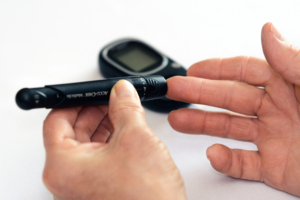Why Do Some Scientists Call Alzheimer’s Disease “Type 3 Diabetes”?
Type 3 diabetes is a recently proposed name to describe a theorized biochemical dysfunction that occurs leading to Alzheimer’s disease. The term was initially proposed in 2008 and has not been accepted by all experts. It is known that individuals with pre-diabetes and Type 2 diabetes are at higher risk for developing Alzheimer’s disease.
One of the hallmark features of pre-diabetes and Type 2 diabetes is insulin resistance. Within neural tissues, insulin resistance can lead to decreased glucose uptake which can lead to a decrease in memory and the ability to reason. Once a patient has developed Type 2 diabetes,
hyperglycemia is a common occurrence and requires diet modification and medication in some cases to manage. Repeated hyperglycemic events result in oxidative stress and inflammation throughout vascular tissue, leading to a higher likelihood of damage occurring.
So, what can you do to reduce your risk of developing Alzheimer’s disease? As this proposed name indicates, managing your blood sugar and reducing your risk for hyperglycemia are very important for prevention. Many studies have shown that reducing intake of ultra-processed
foods and foods high in trans-fats reduces lifelong risk as well. Additionally, large studies have shown that increasing your intake of “neuroprotective” nutrients such as antioxidants and polyunsaturated fats have a beneficial.

